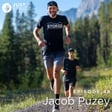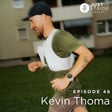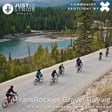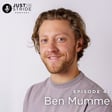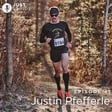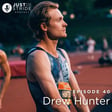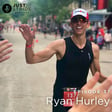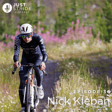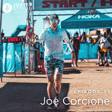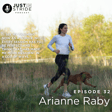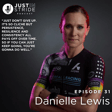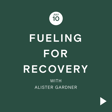
Tabor Hemming on running her first ever road marathon, Elite trail running, road vs trail, being considered one of the fast couples on the trails, the ranch life
On today’s episode of Just In Stride, we’re joined by Tabor Hemming—a talented trail runner, endurance coach, and athlete who brings a wealth of experience and insight to the world of endurance sports.
Tabor not only excels on the trails but also wears many hats in her everyday life. As a coach, she empowers athletes to push their limits and achieve their goals. Alongside her husband and training partner, she navigates the highs and lows of competition while managing the demands of operating a family ranch. This balance of grit, teamwork, and dedication shapes her unique approach to both running and life.
In this episode, Tabor shares her journey as a competitor, the lessons she’s learned from coaching, and how ranch life contributes to her resilience and work ethic. Her story is sure to inspire anyone striving for balance between their passions and responsibilities.
-------
Offer from Xact Nutrition: This episode is presented by our friends at Xact Nutrition and they are offering you 15% OFF your order when you use the code JUSTINSTRIDE. So head to xactnutrition.com and fuel your goals today! Now shipping in Canada and the U.S.
Thanks for tuning in to the Just In Stride Podcast. I truly appreciate you taking the time to listen and I hope you enjoyed that conversation as much as I did. Please take a minute after this to rate and review our show on Apple Podcasts. With your feedback we’ll be able to make the show even better and it’ll help us reach new listeners too. You can also find us on Instagram @justinstridepod and YouTube @justinstridepod for all the latest episodes and updates. Glad you came along for the ride with Just In Stride!
